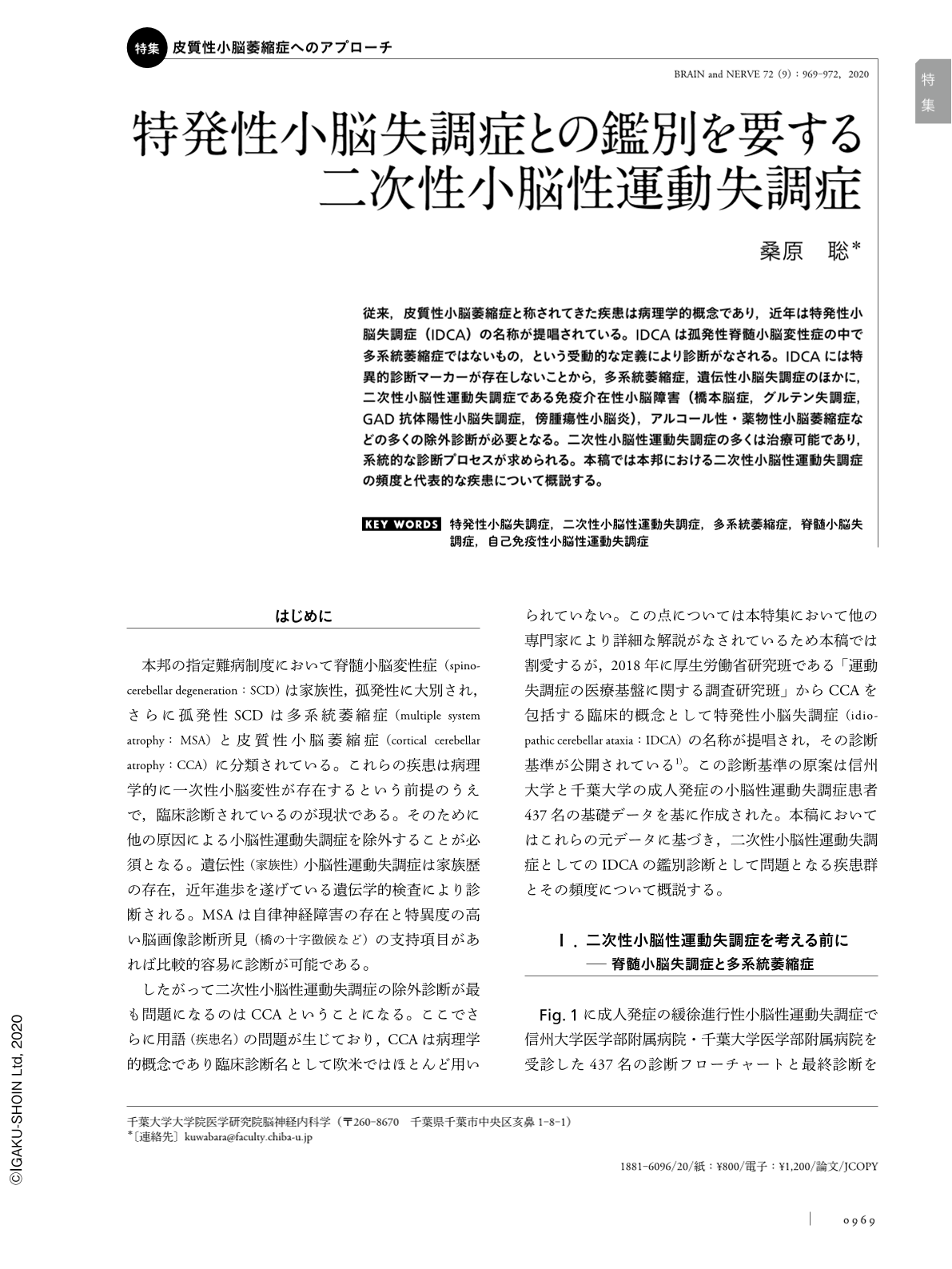Japanese
English
- 有料閲覧
- Abstract 文献概要
- 1ページ目 Look Inside
- 参考文献 Reference
従来,皮質性小脳萎縮症と称されてきた疾患は病理学的概念であり,近年は特発性小脳失調症(IDCA)の名称が提唱されている。IDCAは孤発性脊髄小脳変性症の中で多系統萎縮症ではないもの,という受動的な定義により診断がなされる。IDCAには特異的診断マーカーが存在しないことから,多系統萎縮症,遺伝性小脳失調症のほかに,二次性小脳性運動失調症である免疫介在性小脳障害(橋本脳症,グルテン失調症,GAD抗体陽性小脳失調症,傍腫瘍性小脳炎),アルコール性・薬物性小脳萎縮症などの多くの除外診断が必要となる。二次性小脳性運動失調症の多くは治療可能であり,系統的な診断プロセスが求められる。本稿では本邦における二次性小脳性運動失調症の頻度と代表的な疾患について概説する。
Abstract
Cortical cerebellar atrophy has been defined as a sporadic degenerative cerebellar disorder other than multiple system atrophy, whereas the term “idiopathic cerebellar ataxia (IDCA)” has been recently proposed by a Japanese expert group. There is no diagnostic biomarker for IDCA; therefore, the diagnosis largely depends on exclusion of other cerebellar diseases, such as multiple system atrophy and hereditary spinocerebellar ataxia. Other important differential diagnoses include immune-mediated cerebellar ataxia, such as Hashimoto's encephalopathy, gluten ataxia, anti-glutamic acid decarboxylase-positive cerebellar ataxia, alcoholic cerebellar degeneration, and drug-induced ataxia. Secondary cerebellar disorders are treatable and should be recognized and screened.

Copyright © 2020, Igaku-Shoin Ltd. All rights reserved.


